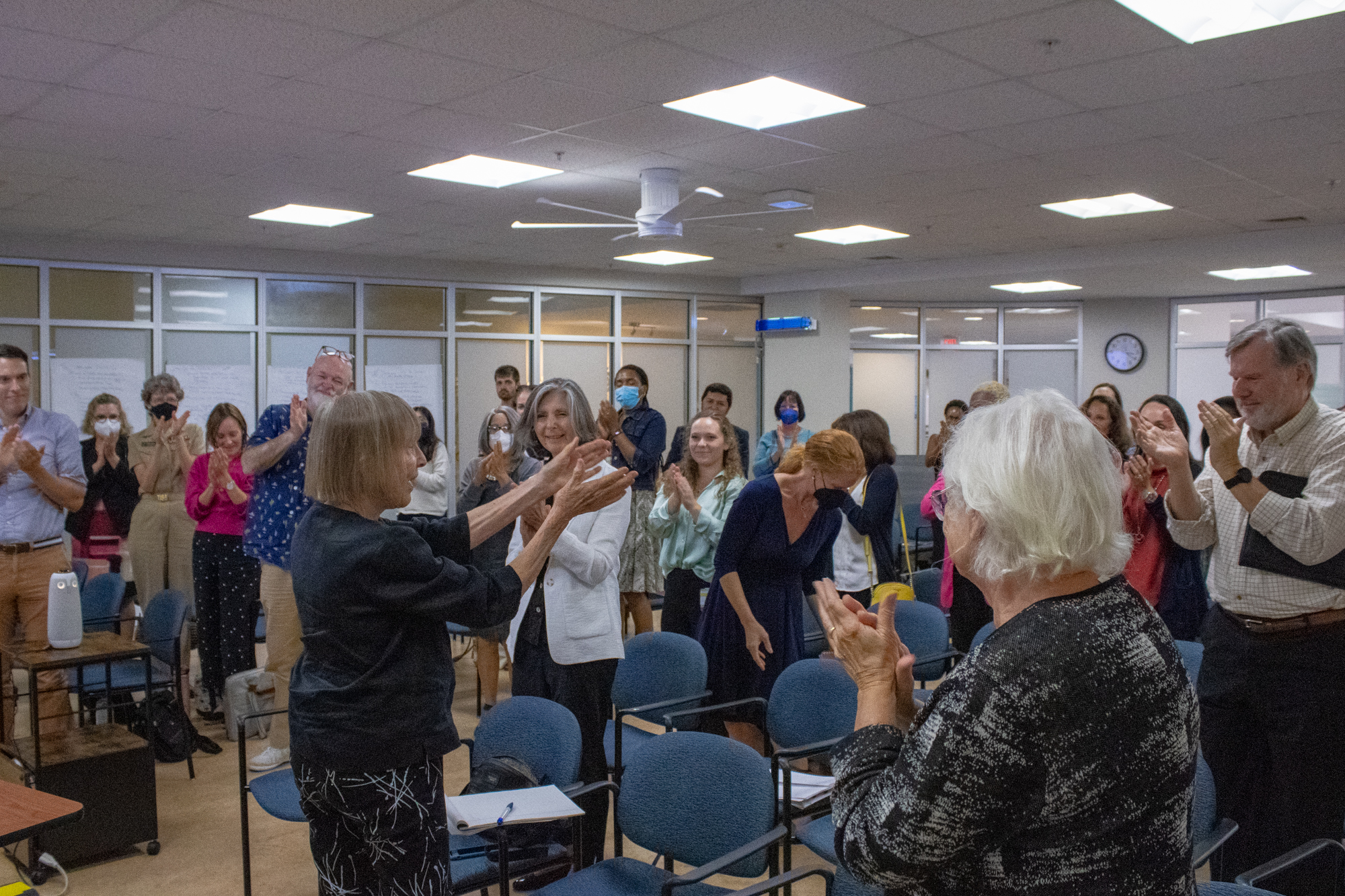By Hailey Closson
For The Diamondback
Former associate research professor and senior scientist Dr. Alice Horowitz received honors from colleagues at the University of Maryland public health school Friday during a symposium celebrating her career in dentistry.
“It’s Alice. If you say Alice to anybody in the dental public health world, they know who we’re talking about,” Dr. Harry Goodman, a consultant for this university’s dentistry school, said. “She’s just a visionary, she’s always a number of steps ahead of everybody else in terms of what is going on.”
Nolwenn Daniels, a senior studying clinical dental hygiene at the University of Maryland, Baltimore Campus, said, “She is a trailblazer. She’s left such an instrumental impact, and she’s a true pillar to this community of professionals who want to increase health literacy, not just for one area of the body, but for systemic health.”
Horowitz dedicated her career to oral health literacy. She worked at the National Institute of Dental and Craniofacial Health and the National Institutes of Health, researching tooth decay and oral cancer prevention.
Horowitz was introduced to dentistry after she dropped out of high school and met a young dentist and his wife, a dental hygienist, who convinced her she should go into dental hygiene.
“It was something that I could do, and I could make a decent living for me and my two children,” Horowitz said.
Horowitz has received numerous awards for her work, including the president’s award from the National Association of Public Health Dentistry and a distinguished service award from the American Public Health Association’s Oral Health Section.
Dr. Dushanka Kleinman, a longtime colleague of Horowitz, said Horowitz has always had the ability to look at the big picture, and has never had a one-off study.
“She has been a system’s thinker, before systems thinking was a cool thing,” Kleinman said.
Kleinman said Horowitz had a comprehensive approach to her studies that made sure to include key stakeholders, providers and policymakers in creating strategies that would benefit society.
“I’m sure everybody here has either a pamphlet, a poster or some tool kit Alice has developed,” Kleinman said.
As for the future of dentistry, attendants of the symposium and Horowitz’s colleagues hope to continue the work she has done in oral health literacy.
“I think definitely there needs to be more communication with providers and also with the patients. I think sometimes patients themselves are a bit scared, fearful of dentists,” said Eileen Morocho, a graduate student in the public health school. “They might feel hesitant to ask questions about their own oral health.”
“We’ve made the argument, and it’s starting to resonate that oral health is a part of general health, it’s a necessary part,” Dr. Goodman said. “ If we’re able to eventually integrate our activities into medicine itself, and I mean combine them, I think we have a bright future.”
Dr. Horowitz is optimistic about the future of oral health, especially in Maryland.
“One, we have both state and federal legislators who are supportive of oral health, and this is very important. So we have to keep educating them about how important this is and why we need to keep moving up,” Horowitz said.
As the symposium came to an end, Horowitz’s focus was forward.
“We can’t quit, we have a lot of work to do,” Horowitz said.



